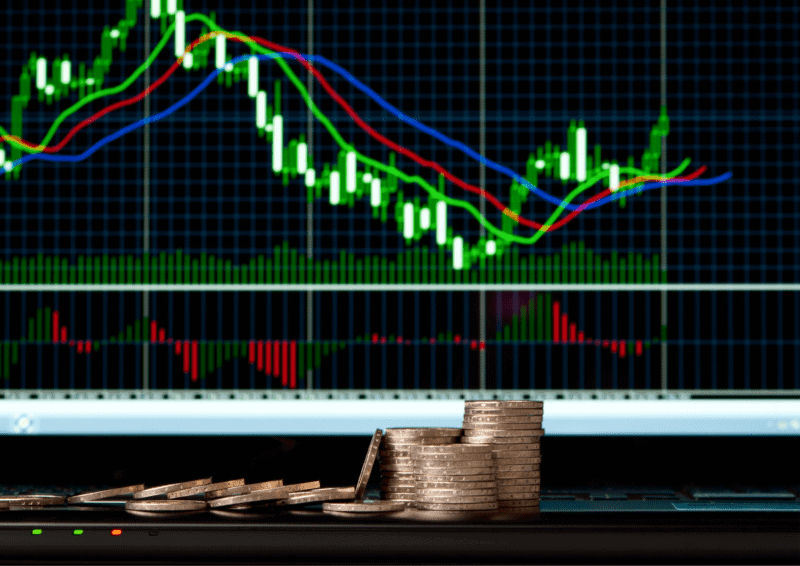In the finance and investment sector, a daily trading routine stands as a cornerstone for achieving success. Both new and professional traders benefit from a structured routine, which helps in efficiently managing trades and keeping abreast of financial market developments. A well-planned routine is crucial for optimizing trading performance and evolving into a more proficient trader.
This article explores the vital daily routines indispensable for every trader, aiming to furnish a general understanding of how to refine trading efficacy. By embracing these routines, traders can not only improve their trade management skills but also stay informed about market dynamics, paving the way to become successful in the trading arena.
Understanding the Importance of a Trading Routine

A trading routine includes every task a trader undertakes from the start to the end of the trading day, covering preparation, execution, and analysis of trades. It’s particularly crucial for day traders and swing traders, as it positions them to leverage high probability trades and reduce risks. The foundation of a successful trading career is built on consistency and discipline, which are cultivated through a steadfast routine.
Successful traders recognize the importance of a daily trading routine in achieving long-term success in the markets. This routine not only aids in identifying potential trades but also in reflecting on the day’s trading performance, fostering continuous improvement. Adopting such a disciplined approach is essential for navigating the financial markets effectively and securing a profitable trading journey.
Also Read: What is Forex Trading and How Does it Work?
Pre-Market Preparation

Before the trading day begins, successful traders dedicate themselves to reviewing market news and conducting thorough analyses of the forex market, stocks, or other financial markets they are involved in. This pre-market preparation is crucial for devising a trading plan, pinpointing potential trades, setting profit targets, and determining stop loss levels. It lays the groundwork for a proactive and informed start to the trading day, enabling traders to approach the market with a clear strategy.
Furthermore, successful traders frequently consult their trading journal during this time, gaining insights from past trades to understand which strategies have been effective and which have not. This reflection allows for the refinement of trade execution strategies, ensuring continuous improvement in their trading approach. By analyzing both successes and failures, traders can adapt and evolve their tactics to better navigate the complexities of the financial markets.
Executing Trades

As the trading time commences, adhering to the pre-defined trading plan becomes imperative for executing trades. Day trading, known for its fast-paced nature, demands swift decision-making, often necessitating the placement of sell stop orders or adjustments in position sizes in response to the real-time market sentiment. This critical phase requires traders to be highly responsive and strategic, ensuring their actions align with the evolving market dynamics.
Effective trade management entails a flexible approach, capable of adapting to market volatility. Traders must be prepared to revise their profit targets and stop loss levels as the market conditions change. Such adaptability not only helps in mitigating risks but also in maximizing potential gains, underscoring the importance of agility and foresight in the day trading domain.
Post-Market Review
Post-trading session, conducting a thorough review of the day’s trades and overall trading performance is essential for continuous improvement. A trading journal proves to be an invaluable tool for many traders in this regard, enabling the meticulous tracking of trades, trade setups, and market conditions. This systematic record-keeping facilitates a deeper understanding of actions taken and their outcomes, serving as a foundation for refined trading strategies.
By analyzing both successful and unsuccessful trading decisions, traders can significantly influence their future trading sessions. This reflection process not only highlights areas for enhancement but also reinforces effective trading habits. As a result, the trading routine evolves, becoming increasingly optimized for better results, demonstrating the power of introspection and adaptation in the pursuit of trading excellence.
Staying Informed and Educated
Staying informed about the markets and engaging in continuous learning are key components of a daily trading routine. Regularly reading market news, grasping the nuances of price action, and maintaining awareness of resistance levels and market volatility are vital for making well-informed trading decisions. This knowledge equips traders with the insights needed to navigate the complexities of the financial markets effectively.
Moreover, dedicating screen time to analyze charts and forex pairs that exhibit high correlation plays a significant role in enhancing trade execution. Such analytical practices enable traders to identify patterns, trends, and potential trading opportunities more accurately. By integrating these activities into their daily routine, traders can significantly boost their trading performance, leveraging informed insights to optimize their trading strategies.
Building Your Own Trading Routine

Developing an effective trading routine requires customization to align with your personal lifestyle and trading preferences. Regardless of your interest in forex, stocks, or other markets, the essence of a good routine is its capacity to let you be your own boss, manage your time effectively, and ensure adequate leisure time. This personalized approach facilitates a trading environment where decisions are made on your terms, reflecting your unique goals and strategies.
Achieving a harmonious balance between trading activities, continuous learning, and personal life is fundamental for traders aiming for both financial success and personal satisfaction. This equilibrium not only enhances financial outcomes but also contributes to overall well-being and life satisfaction. Such a balanced routine underscores the importance of integrating professional ambitions with personal happiness, leading to a more fulfilling trading journey.
Conclusion
Daily trading routines stand as a cornerstone for those committed to excelling in their trading careers. The journey from pre-market preparation to post-market review encompasses crucial steps that collectively contribute to a trader’s path to success. A disciplined adherence to a structured routine enables traders to enhance their trading performance, maintain focus, and achieve their goals as successful traders. The importance of each phase in the daily routine cannot be overstated, as it collectively shapes the trader’s approach and outcomes.
The hallmark of the best traders lies in their discipline, their commitment to staying informed, and their openness to continuous learning and adaptation. These qualities are essential for refining daily trading routines to achieve optimal results. Embracing a mindset geared towards growth and adaptability allows traders to navigate the complexities of the markets more effectively, setting the foundation for sustained success and improvement in their trading endeavors.
Also Read: Forex Trading Tips All Traders Should Know
FAQs
What is a daily trading routine?
A daily trading routine is a structured plan that guides a trader through the pre-market preparation, trade execution, and post-market review phases of the trading day, aimed at optimizing trading performance.
Why is a trading journal important?
A trading journal is crucial for tracking trades, market conditions, and trade setups, providing insights for improving future trade execution and overall trading strategy.
How can traders stay informed about the markets?
Traders can stay informed by regularly reading market news, analyzing price action, understanding volatility, and spending time analyzing charts to make well-informed trading decisions.

















